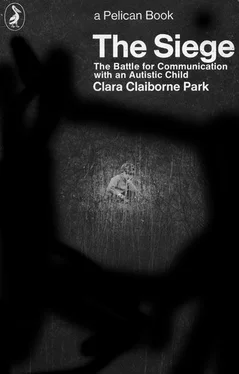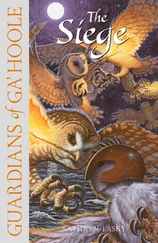If I were to describe them this would be the place to do it. Their separate characteristics, the weaknesses and strengths of each one of them, are part of Elly’s story. But it is a part that must remain incomplete, even at the risk of unreality. Our children have put up with a lot of things because of Elly; they will not have to put up with reading their mother’s summation of their personalities printed in a book. I set down only what is obvious, what is attested by teachers, friends, and neighbours. It is all that is necessary here. Our children were intelligent, responsive, and adaptable. They were also — quite irrelevantly — beautiful, with a pink-and-gold beauty which seemed to belong not to the real world but to the illustrations of old-fashioned story-books. I luxuriated in their beauty; it seemed to me that I had unaccountably given birth to two princesses and a prince. As I looked at them, remembering my own bespectacled childhood, they seemed a special and continuing miracle. It is our eyes that we believe. Irrationally, it was their beauty, with which I had had nothing whatever to do, that summed up my pride in them. It shone around them, an astonishing, almost palpable fact, as if to symbolize their less superficial successes — their intelligence and their affection.
That year, the year of Elly’s beginning, a friend had visited us, one with whom we had long been out of touch. A man with a gift for intimacy, he formulated a single question to bring us close together again: ‘Tell me,’ he said, ‘what have you done in the past five years of which you are most proud?’ He, a man of considerable attainments as a scientist, was proudest of his successful psychoanalysis. I was proudest of my children. Clearly he, a married man childless by choice, was astonished and unsatisfied by my answer as I was by his. To each his own achievement, and his own pride in it. I was terribly proud to have produced three such children. But it was my thought that the job was nearly over. Like my husband’s, it had been demanding, varied, and in the main satisfying. I had done it well. Now I would grope my way back towards some of the other things I knew how to do.
I had begun to discover, in the long hours of fragmented attention while I listened to small people’s chatter, what I had been too dim and too timid to perceive in a graduate school. I was no natural homebody. I had the stirrings of a vocation. I had done some teaching while I was at the university — pickup work, freshman composition in the years of the great postwar teacher shortage. I was sure now of what I had only suspected then — that this was what I wanted to do. I had spent seven years teaching little people, with some success. Now I wanted to teach people whose minds could in some measure answer my own. In two years all the children would be in school. My days would be my own again; I could have again the forgotten experience of being alone. I would have time to read, to bring my knowledge up to date. I could perhaps write. I could locate a school in which I could teach part time.
It was in this forward-looking state of mind that I learned that I was pregnant for the fourth time and that the job was to be done all over again.
Except for the initial depression as the gates clanged shut, the pregnancy was uneventful. The household was full and active, I had no choice but to be busy, and depression gave way to an intermittent, semi-comic rage that was much easier to handle. The only way to deal with the jokes played by feminine biology is to agree that they are funny. Nothing unusual happened until I was in my sixth month, when the children picked up measles. I had not had it. For a pregnant woman, ‘measles’ is a frightening word, but my doctor reassured me. It was not the severe disease that was dangerous, but the milder German measles: there was nothing to indicate it would affect the unborn baby, who was in any case advanced beyond the vulnerable stage of development. Besides, I was probably mistaken; most adults had had measles; it was easy to forget these things. I was still worried enough to call a doctor in Boston, a personal friend. She concurred. Accordingly, I received gamma globulin from my own doctor, enough to modify the disease but not to prevent it. When it came, I was very sick, but only for a week, and I recovered without after-effects.
Three months later, on 20 July 1958, on schedule and without complications, the baby exploded into life. Once again it was over, this birthing, this experience unassimilable to any other, in which brain and familiar personality are incredibly harnessed to an enormous body whose work and pain spread from the centre to take in every remotest nerve-end and at last the whole world. Doctor and nurse moving dreamlike above me, I lay in the delivery room worn out, in the state of heightened emotional perception that accompanies an experience that has involved totally everything that one is. What had I made this time? The nurse anticipated my question. ‘You have a lovely little boy.’
But that wasn’t true, I didn’t have a little boy at all. She had made a mistake, a slip of the tongue perhaps, corrected inside the minute. But one is very vulnerable after prolonged pain. Until they took my little boy away I did not realize how much I had wanted him — a brother for Matt, who would now be isolated among three sisters — a boy, because one can dream bigger dreams for a boy than for a girl. But the baby was a girl, and the doctor had been right. The measles had left no trace. She was healthy and perfect.
And then there was the matter of the name. For three days Elly lived nameless, as none of my other babies had had to do. We had thought we had a name ready. She — if she was a girl — was to be Hester, a restrained New England name, which my husband and I thought beautiful. But complications arose, the silly complications of a happy modern family in which everybody’s ideas count. Sara hated the name Hester, she thought it was awful. It had been agreed for months that this baby, born within a month of her birthday, was to be in a special sense hers, as Matthew had been Rebecca’s birthday present almost four years before. Sara’s very own baby couldn’t have a name she thought was awful — we all saw that. So the little bundle went unnamed as we tried to suit everybody and finally settled on a compromise that nobody liked or objected to very much. The baby would be Elinor. It was a strange, uncertain beginning. First sex unclear, then name, in which, irrationally, so much of personality seems to inhere. David Copperfield was born with a caul. A nineteenth-century novelist could have imagined no more fitting introduction for a child whom twentieth-century psychiatrists would see as suffering from a condition which Erik Erikson calls early ego failure, in which the very boundaries of the self are confused and undefined.
But nobody thought of portents then. Elly was fine and healthy, unusual in no respect except that she cried with colic day and night. Even that was not unusual in our family. Becky had done exactly the same thing. There is a section in Spock on three-month colic. Our copy opens of itself to those grimy pages. Colic is a strain on everybody concerned, but it is nothing to worry about. We took turns rocking and cuddling her, my mother and I, so the family could have some peace by day and sleep by night. Elly cried and cried and lay at my breast and ate and cried again and grew. By the time she was three and a half months old the colic was largely gone, by five months she was a gay and cheerful baby, though as late as seven months she would sometimes give a sharp yelp after her milk went down to remind us of those early weeks.
One does not watch the second baby as closely as the first, and the fourth may hardly get watched at all. Nevertheless, I remember that Elly did the usual things roughly on schedule. I remember that at seven weeks she smiled, in a brief interval between screams. At two months she even smiled at her teddy bear. That seemed very advanced to us; none of the others had recognized a human surrogate so early. She reached for objects at the usual time. Photographs of her at five months show an alert, gay baby, smiling up out of her bath straight into your eyes. Memory can play tricks. My children all have the same hair and colouring, and their baby pictures are very much alike. Three years later, in the midst of Elly’s dreamlike remoteness, I went over the old pictures, combing my brain for clues to when it began. I found one of a baby laughing aloud, eyes focused. directly on her father’s face behind the camera. I rejected it altogether. That was not Elly’s empty gaze, straight through you to the wall behind. The pictures had been scrambled. That was not Elly. That had been Matt. But I was mistaken. Two years afterwards, my mother produced her copy of the picture, incontrovertibly dated. That was Elly. The smiling baby had really existed. She had been different then.
Читать дальше












